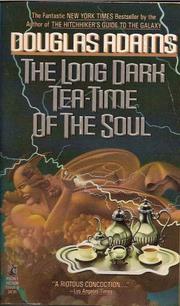Now that Festivus is over, I'm dedicated to getting this blog going again. I'm going to rip through some books over here, I promise. Let's begin by wrapping up Half Broke Horses, shall we?
After finishing the whole story, my recommendation still stands. Walls brings to life an amazing character in all her complexity, celebrating her while never shying away from her flaws. That's quite an accomplishment, especially considering the character is her actual grandmother. It would be so easy to just make her sound delightful and move on, but there's a mountain of dysfunction in Walls' family, and that didn't just crop up out of nowhere. Lily Casey Smith was a tough woman, and you can admire her for that, but on the other hand she was also a hard woman, and that wasn't so easy for her little daughter who grew up to be the author's messed up mother.
The book is subtitled, A True Life Novel, which at first glance makes no sense. Walls decided to tell Lily's story first person, thereby being forced to fictionalize some details and dialogue in order to keep a readable narrative going. For this reason, I guess, it's no longer a memoir or a biography. Lily grew up on horse ranches in West Texas, New Mexico, and Arizona. She later taught school (uneducated and uncertified herself, but willing, I guess, and that's all that mattered at the time) in one room school houses in remote desert towns. She married, had two kids, and worked ranches with her husband, too. She was a horse racin', poker playin', airplane flyin', gun totin', straight shootin' wild west character, and while that life may have been wild and free, it was not easy by any means. Some of Lily's stories are awe inspiring, some mind boggling, some horrifying, some hilarious. One of my favorite lines is repeated a few times when Lily says, "You just got the lace knocked off your panties, that's all!"
But you get the sense that as she aged, Lily lost patience with the softness in other people. In particular, she had very little empathy for her dreamy, artistic, impractical daughter. She spent most of her time "teaching her a lesson," thinking she was saving the girl from learning hard truths through experience. Little Rosemary was impulsive and irrational though, and these cold lessons just pushed her further and further from her mother's practical approach to life's joys and miseries.
In her first memoir, Walls told the Angela's Ashes-esque story of her own childhood in Rosemary's manic-depressive care. (Walls' father was also an alcoholic and a dreamer.) Having read The Glass Castle, it's fascinating to see where some of Rosemary's personality quirks originated. As I said in my last post, I would recommend reading The Glass Castle first. Half Broke Horses definitely stands on it's own as a novel and could be read entirely by itself, but you would miss some of the deeper, looming tragedy that will play out in the next generation. It would be interesting to read them chronologically, I guess, but I still think that there's an assumption in Half Broke Horses that you already know and understand the darker aspect of Lily's legacy. Whichever way you decide to tackle them, both stories are gripping and complex and real and amazing.
Thursday, March 4, 2010
Subscribe to:
Post Comments (Atom)


No comments:
Post a Comment